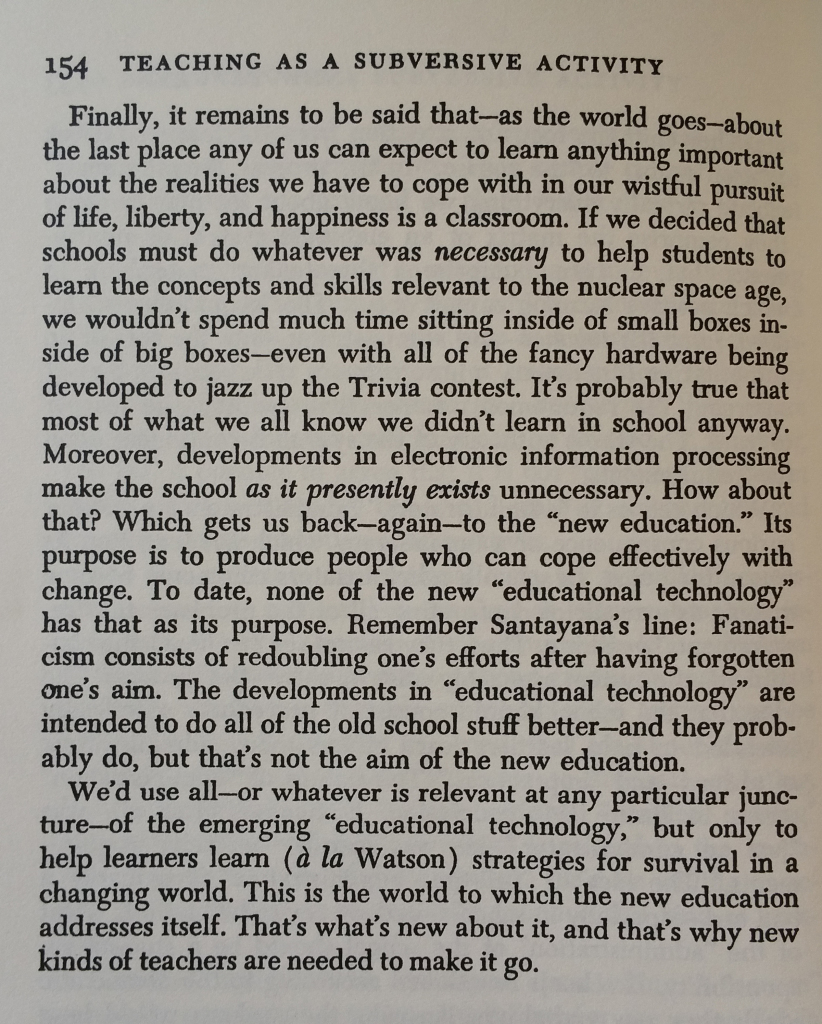I want you to describe for me the elements that are active in a college where there is a clear “culture of learning” among faculty. Ok, go ahead.
(time passes and you think about the question above and even have some answers)
What are the expectations of the faculty about their role in learning about teaching and learning? How would faculty respond to, “Tell me what you do to improve your skills as an educator?” I imagine many would say I attend workshops. I imagine many would say I talk to my colleagues. I imagine some would say I attend conferences about teaching. I imagine a few might say I read books about teaching and learning.
How does the institution support the professional growth of the faculty? Well, we have workshops, day long workshops, we bring in some guest speakers. We have monies available to send faculty to conferences. We have yearly evaluations that include professional growth activities.
How to deans support the faculty when it comes to developing a group of faculty who are literate in current educational practices and skills. Do they share books about the profession with them? Do they recommend conferences to attend? Do they send them off to confer with colleagues at other institutions to share best practices with? Do they sit in front of each faculty member and ask, “What can I do to help you?”
Finally, what is the role of each faculty member in this culture of learning? How do they share the valuable things they discover as educators? What venues are available to them to share the ideas and what opportunities might they create to share them? Are they visibly supported to be innovative and experimental in their approach to the work they do?
What can we do for ourselves as professionals in the field of learning?
- Attend a conference that is about teaching, not a particular subject.
- Read a book about teaching and learning.
- Watch a movie about teaching and learning.
- Have a conversation longer than a few minutes about specific practices in the classroom or online.
- Take a faculty member you admire out to lunch and ask them 100 questions about how and why they do what they do.
- Call a faculty member from another college in the state and ask them about how they teach and what works for them.
- And most importantly, share what you read or discovered with your colleagues.
- Go visit a local college and just see who is there and what they think about teaching and learning. There are lots of faculty sitting in offices. Some busy, some not so.
- Take an entire class period to ask students what they need and want when it comes to learning stuff. And make sure to ask them how they know those things are actually true.
- Pick a portion of a book or a favorite quote about teaching and put it on your office wall. Make sure everyone who comes into your office reads it and shares their thoughts about it with you. No matter what.
Here is mine.
Now, I ask you if your classes have all these same elements? They should because they also should be surrounded by a culture of learning.

You are the best kind of fanatic: frantic, forthcoming, fearless for the cause.
I’d like to SEE what a class that includes these various ‘elements’ actually looks like – sounds like a DS106 assignment to me.
That Todd looks like an invitation to read the book u are quoting. Thank you. I enjoyed reading that.
Simon, Teaching as a Subversive Activity is a classic in my book! Highly recommended. By me anyway…
One of the items pointed out to ask students what they need and want in learning. For some reason that jumped off of the page at me. It’s a question we do not ask very often or not at all. I will find a way to include it my first class session. This could encourage students to be more active in their learning process.
You describe a good start at an informal formative learning practice. Taking the concerns and “needs” expressed by students into account, and acting on them, helps student have direct ownership is the path they are walking.